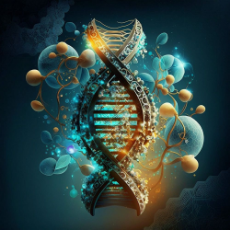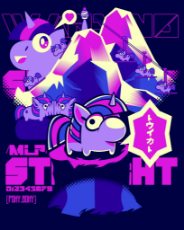Companies like Solugen, EnginZyme, Amyris, and many others are beginning to use engineered microbes and enzymes to manufacture industrial chemicals. Everything from plastics, to chemical intermediates, to solvents, to fuel, even semiconductors (https://www.science.org/doi/10.1126/science.aam9756) and nanoparticles (https://microbialcellfactories.biomedcentral.com/articles/10.1186/s12934-020-01455-5) could all be produced from biological sources. Synthetic biology could soon eliminate the need for Middle Eastern petroleum or Chinese rare earth minerals. So my question to you all is why do so many people on the right oppose biotechnology? This is the only viable path to autarky that we have. Why oppose such technology?
/mlpol/ - My Little Politics
Archived thread
1729970513.jpg (168.7 KB, 1000x1000, Dreamy-world-synthetic-biology.jpg)

>>377871
You forgot to mention the advances in biocomputing. No need to rely on Taiwanese factories for chips when you can grow a computer at home.
https://finalspark.com/biocomputing-the-next-evolutionary-leap/
You forgot to mention the advances in biocomputing. No need to rely on Taiwanese factories for chips when you can grow a computer at home.
https://finalspark.com/biocomputing-the-next-evolutionary-leap/
>>377893
>No need to rely on Taiwanese factories for chips when you can grow a computer at home.
What if the Taiwanese chips are so much faster, cost-effective and just overall better. So much so, that they relegate homegrown computers to a nerdy hobby?
I mean, your potential to build your own stuff might increase with newer technology. But you'd have to be giga-retarded to think big corporations won't negate it with superior tech and better, more efficient production lines.
>No need to rely on Taiwanese factories for chips when you can grow a computer at home.
What if the Taiwanese chips are so much faster, cost-effective and just overall better. So much so, that they relegate homegrown computers to a nerdy hobby?
I mean, your potential to build your own stuff might increase with newer technology. But you'd have to be giga-retarded to think big corporations won't negate it with superior tech and better, more efficient production lines.
It doesn't have to be the newest and bestest technology ever to be useful.
Any sort of improvement to supply chain issues and production logistics seems like it would be a net positive.
>>377871
>why do so many people on the right oppose biotechnology?
I don't know what opposition you have observed in others.
For the Left, the source of opposition could be that easing the demands of logistics networks reduces the market forces that support their attempts to implement worldwide Communism and Globalism in a planned economy. We know that that ALWAYS results in the theft and concentration of civilizational wealth, and then the mass eradication of the "useless eaters" who have had their lives drained dry through large scale economic tools.
Biotechnology in this usage, I haven't heard any opposition to. Biotechnology in the abstract is threatening in the same way that "genetic engineering" was threatening during the cultural times of the first live-action Spider-Man movie with Toby Maguire. It's threatening for the same reason that radioactivity was a scary threat that gave the earlier backstories of Spider-Man his powers.
In short, it's new, potentially disruptive, and the instinct package that makes someone "on the right", or roughly "conservative" includes wariness around what might seem like an un-needed or unjustified change to major aspects of life.
I'm worried about what possibilities this opens up.
There's an idea in Science Fiction of a "Grey Goo" scenario. In short, this is where we make self-replicating nanobots, and they replicate infinitely. Taking apart all other molecules in order to re-assemble them into nanobots.
This concern relates to bio-engineering bacteria changing to eat things we don't want them to eat. Or those plastic eating bacteria being released into some environment where plastics are really needed. Like if there was something that made plastic turn into useless goo super fast, and it was released in some storage environment that used a lot of plastic containers, or plastic wrap, then that could really mess up the supply line systems.
Any sort of improvement to supply chain issues and production logistics seems like it would be a net positive.
>>377871
>why do so many people on the right oppose biotechnology?
I don't know what opposition you have observed in others.
For the Left, the source of opposition could be that easing the demands of logistics networks reduces the market forces that support their attempts to implement worldwide Communism and Globalism in a planned economy. We know that that ALWAYS results in the theft and concentration of civilizational wealth, and then the mass eradication of the "useless eaters" who have had their lives drained dry through large scale economic tools.
Biotechnology in this usage, I haven't heard any opposition to. Biotechnology in the abstract is threatening in the same way that "genetic engineering" was threatening during the cultural times of the first live-action Spider-Man movie with Toby Maguire. It's threatening for the same reason that radioactivity was a scary threat that gave the earlier backstories of Spider-Man his powers.
In short, it's new, potentially disruptive, and the instinct package that makes someone "on the right", or roughly "conservative" includes wariness around what might seem like an un-needed or unjustified change to major aspects of life.
I'm worried about what possibilities this opens up.
There's an idea in Science Fiction of a "Grey Goo" scenario. In short, this is where we make self-replicating nanobots, and they replicate infinitely. Taking apart all other molecules in order to re-assemble them into nanobots.
This concern relates to bio-engineering bacteria changing to eat things we don't want them to eat. Or those plastic eating bacteria being released into some environment where plastics are really needed. Like if there was something that made plastic turn into useless goo super fast, and it was released in some storage environment that used a lot of plastic containers, or plastic wrap, then that could really mess up the supply line systems.
Unless you're unironically female, because robo waifus
>>377871
>So my question to you all is why do so many people on the right oppose biotechnology?
Probably because 99% of this "game changing" breakthrough stuff I see is a scam that never actually goes anywhere.
>So my question to you all is why do so many people on the right oppose biotechnology?
Probably because 99% of this "game changing" breakthrough stuff I see is a scam that never actually goes anywhere.
8 replies | 3 files | 8 UUIDs | Archived


 Ex: Type :littlepip: to add Littlepip
Ex: Type :littlepip: to add Littlepip  Ex: Type :eqg-rarity: to add EqG Rarity
Ex: Type :eqg-rarity: to add EqG Rarity 